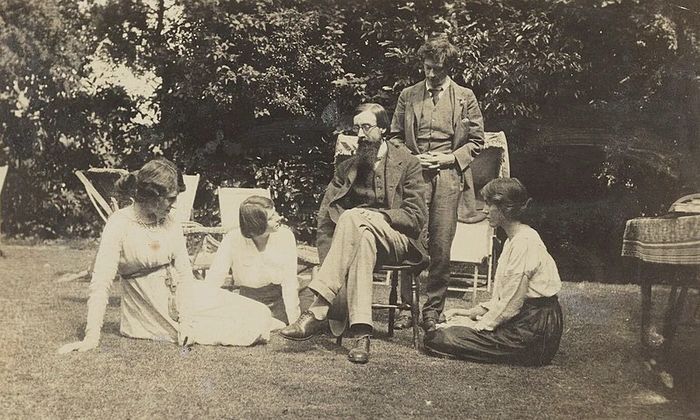Sylvia Plath’s Cambridge
Emily Cushion recounts stories from Plath’s time at Cambridge, reflecting on the pragmatism of her university writing

Ted Hughes once suggested that his romance with Sylvia Plath dominated his university years, forthrightly beginning a poem with the line “Cambridge was our Courtship.” To assume Plath felt the same is a wild misjudgement. Upon her arrival to the town in October 1955, Plath wrote to her mother: “I must make my own Cambridge,” a simple statement cementing her true intentions for this new chapter in her life. Indeed, the potential of Cambridge seems boundless for Plath, following the “acute depressions” she experienced while studying at Smith College in Massachusetts beforehand. Optimism permeates her letters: “I feel that after I put down roots here, I shall be happier than ever before, since a kind of golden promise hovers in the air along the Cam and in the quaint crooked streets.” This early epistolic poeticisation of the town acts as a precursor for the pieces Plath would go on to write and later publish about her time in Cambridge.
In what is perhaps her most famous poem about Cambridge, ‘Watercolor of Grantchester Meadows’, Plath disassociates herself from those who are too wrapped up in their own lives to notice the beauty of their surroundings:
“[…] the students stroll or sit,
Hands laced, in a moony indolence of love –
Black-gowned, but unaware
How in such mild air
The owl shall stoop from his turret, the rat cry out.”
"Plath deemed the constant rhetoric on the difficulties of being a female student tiresome"
For many, the infamous Cambridge gown has become a superiority symbol, something Plath usurps in revealing how physically shrouding yourself in a cloak of intellectualism does not detract from inner “indolence” and self-preoccupation. Cambridge inevitably feels enveloped by academia, superseding all other aspects of the place. In picking out tiny and seemingly insignificant details, down to “each thumb-sized bird,” Plath effortlessly separates herself from those who are “unaware” that there is more to Cambridge than its university, inviting her reader to do the same.
Despite being astonished that “the ratio here is 10 men to each woman!”, Plath deemed the constant rhetoric on the difficulties of being a female student tiresome. She comments on listening to the “most incredibly pained conversation”: “I always thought they expected girls to do worse than boys at things, you know.” “What?” “Worse than boys.” “Oh.”’ Though Plath herself evidently didn’t consider it a particular achievement, we must acknowledge that she arrived at Cambridge just seven years after women were deemed eligible to obtain a degree, and less than a century after they were permitted to study here at all. Thus, she represents one of the first and most influential of the university’s female students, refusing to view her gender as a limitation despite the university’s extensively misogynistic history.
"I take great delight in the unseen and supposedly boring details of Plath’s time here"
While it may feel impossible for the average Cambridge student to reach the status that Plath did over her time here (yes, I mean me), we can at least take comfort in sharing an experience with such a revered and acclaimed literary figure. Okay, she may have been publishing her own poetry, acting in the ADC, and altogether changing the history of the University as it stood, but she was equally homesick, lonely, and apprehensive, feelings that are likely familiar to all of us.
Plath herself admitted that “I always have to digest experience first, before re-forming it,” something that I hope can speak to many about the necessity of giving ourselves the breathing room to reflect, instead of constantly striving for perfection (though I know this will be difficult for some of you). There is a certain poetry in the mundanity of daily life, even in a place as unpredictable and bewildering as Cambridge. I take great delight in the unseen and supposedly boring details of Plath’s time here: “I had fried potatoes and bacon and buttered brown toast and two cups of coffee this morning; my favourite breakfast.” Perhaps we would all benefit from skipping a 9am once in a while to indulge in hall breakfast… you can always email your lecturer and say that Sylvia Plath implored you to do so.
Want to share your thoughts on this article? Send us a letter to letters@varsity.co.uk or by using this form.
 News / Downing investigates ‘mysterious’ underground burial vault 29 December 2025
News / Downing investigates ‘mysterious’ underground burial vault 29 December 2025 Lifestyle / Ask Auntie Alice29 December 2025
Lifestyle / Ask Auntie Alice29 December 2025 News / Unions protest handling of redundancies at Epidemiology Unit30 December 2025
News / Unions protest handling of redundancies at Epidemiology Unit30 December 2025 Features / ‘Treated like we’re incompetent’: ents officers on college micromanagement30 December 2025
Features / ‘Treated like we’re incompetent’: ents officers on college micromanagement30 December 2025 Science / Astronomical events to look out for over the break29 December 2025
Science / Astronomical events to look out for over the break29 December 2025










